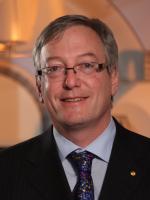
Professor Michael Barton
Put on your rose tinted glasses if you need them but the world is a better place than most people think and the oncology community has the capacity to meet global demand for cancer care into the future.
Scientia Professor of Radiation Oncology at UNSW Michael Barton told the limbic that therapeutic nihilism in the face of an apparently daunting problem did no one any good.
And the global experience with HIV was a reasonable comparison, he said
“In fact the model of HIV was to set up a global fund for HIV where they improved the supply chain but they also drove down the cost of drugs.”
Speaking ahead of the 2019 COSA ASM session on how global health and oncology intersect, Professor Barton said looking at cancer control from an investment point of view was also revealing.
“You would spend somewhere between $84 and 180 billion but you would get back $280 billion in terms of return on investment – lives saved, less cost of care and more economic productivity,” he said.
Professor Barton has been a co-author on a number of recent articles including the Lancet Oncology series on cancer control in small island nations including the Pacific and Caribbean and estimates of global chemotherapy demands and workforce requirements for 2040.
He was also an author in the 2015 Lancet Oncology Commission on expanding global access to radiotherapy.
Professor Barton said the numbers of cancers globally will almost double by 2035 and most will be in middle-income countries including our near neighbours in Fiji, Papua New Guinea and Southeast Asia.
And while the world was ageing, a known risk for factor for cancer, it was also getting richer.
“The proportion of people living in extreme poverty, less than $2 per day, is now 10% and 40 years ago it was 50% of the world. So we’ve got a much richer population.”
“90% of kids are vaccinated; 90% of people have access to electricity. The world is actually a lot better than most people think and that means that it is possible to make meaningful change and probably the biggest improvement we can make to cancer outcomes is in middle income countries.”
He said the International Atomic Energy Agency had been successful in establishing cancer treatment in low-income African countries such as Gabon, Ghana and Rwanda.
“They have managed to get good cancer centres up and running and are looking at expanding them to other sites. So it is possible to do it in low income settings or middle income settings.”
Countries often just required some expert guidance about the type of services, how much they needed, where should it go, etcetera.
“If you accept that people are in the health professions to do good, this is probably the biggest area where you can do good,” he said.
“It’s hard to make a big difference in Australia. You’d want to look at poor outcome cancers like pancreas and brain. You’d want to get rid of unwanted variation in practice – probably the single biggest thing you could do to improve cancer outcomes in Australia.”
“In places like New Guinea, you would really want to be immunising for hepatitis and HPV but that is not going to pay off for 10-20 years. You have to have an effective treatment strategy.”
Professor Barton said cancer control was a continuum from prevention and early detection through to survivorship and palliation.
“It’s not either /or for any of this – you need them all for a good cancer control program.”
“We have a lot of ad hoc and kind of haphazard efforts that could be better coordinated and directed. Plenty of people do worthwhile things, but it’s probably best to bring them together under a strategic program.”
He said in his own area of expertise, radiation therapy suffers a little from unfamiliarity and large establishment costs but the overall cost effectiveness is very high. The investment in equipment and staff would treat people for 15-20 years.
Staffing, not drugs or equipment, was the biggest cost and it was important that local staff were trained locally.
“If you take people away and train them in high income countries, they will stay in a high income country. You get this brain drain.”
He said people had to breakthrough some of their prejudices such as the assumption that cancer can’t be treated in low or middle-income settings.
“I think we should be a lot more positive otherwise we are going to fail to meet this demand. The world isn’t as bad as we think; we can achieve things.”